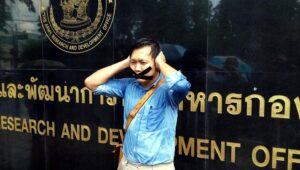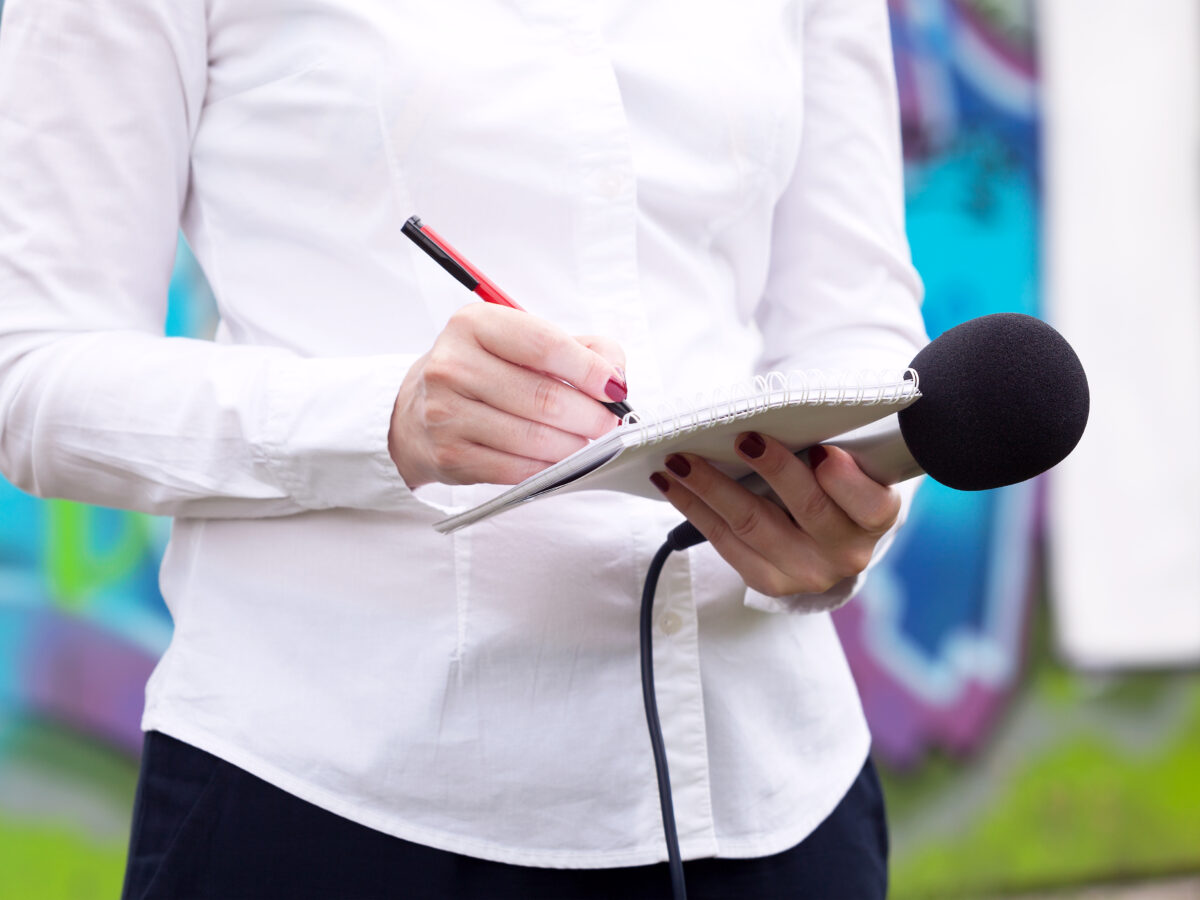Regardless of individual political persuasions, or where you are in the world, the COVID-19 crisis has pushed faces of the mainstream media into our news feeds and living-rooms every day, and everyone has an opinion about them. The latest ‘media episode’ has brought the UK Prime Minister’s Special Advisor (SPAD) Dominic Cummings into our living rooms from the rose garden at 10 Downing street. This followed two media outlets reporting his trip north to his parents’ home during lockdown, breaking the guidelines he helped develop and deliver to a largely compliant British public. He cites medical and childcare issues, sparking a fierce public reaction on social media and via inboxes of journalists and MPs. It has also sparked debate about the behaviour of the media, as Mr Cummings blames them for generating ill-feeling towards him.
Debate is good – it helps understand core issues from a number of viewpoints. In the case of the media, what isn’t so good is the seemingly increasing levels of vilification towards journalists, with ‘media scum, ‘dogs’ and ‘vultures’ often used to describe them, and this is a concern.
First impressions of the media
Journalists have always had mixed reputations and public support. As a young lieutenant in the Royal Navy, after a week in my first PR job, with no training and a scant handover, I was given a pager and a book of ‘lines to take’. Then everyone went on Christmas leave. At that time, I had an open mind about the media, as I knew I would be working with them for the next three years. However, I was surrounded by colleagues that did not like the media. At all.
After 10 days I took my first press call in response to a CND protest. It was Kit Fraser who presented BBC Scotland’s flagship drivetime breakfast news programme. It was early morning and a submarine was involved in a CND protest, which had informed media outlets. I gave a live interview over the phone, getting my ‘line to take’ straight from two senior officers sat next to me in the ops room and anxiously listening in.
Kit was simply calling to report the facts on a live incident. He was just doing his job and that didn’t seem bad to me. Then soon after, I started taking calls from other media, including the Daily Record. I very quickly learned that whilst all journalists gather facts and report a story, it is usually their editor’s direction, how they gather the facts, and their general behaviour that lead public opinion of them and what they actually report. They are the messenger for the public that either read, listen or view their outlets, and in crisis communications their role is crucial.
The behaviour and role of the media
Although there has been a somewhat tempestuous relationship between Downing Street and the media, journalists were following up a story that was reported after a tip-off; journalistic investigation; and reporting an incident that is both of public interest and in the public interest.
In the near 30 years I have dealt with the media, nothing has changed in terms of what journalists do. What has changed is how they do it, how this is received by some and how people consume news.
I was living in the Middle East during the phone-hacking scandal and the subsequent Levenson enquiry, so I didn’t live through nor feel the full brunt of the scandal. It has, however, clearly left a legacy of how the UK institutions, businesses and public perceive the mainstream media. It was appalling behaviour by those involved in phone-hacking to get their story. The industry as a whole has had to live with this loss of public trust and confidence ever since. Many journalists work hard to report the news fairly and objectively, but they still face trust and confidence issues, often when public figures are involved.
The other factor is how news is consumed: a relentless non-stop, 24/7 news cycle, both digitally and traditionally, social media, and the emergence of citizen journalists and bloggers. Anyone with an opinion and access to information has a platform, so traditional journalism is being challenged and scrutinised. Nevertheless, its role remains crucial and relevant in today’s society.
Former media owner and billionaire philanthropist Warren Buffet once said of journalists:
“The smarter the journalists are, the better off society is. For a degree, people read the press to inform themselves – and the better the teacher, the better the student body.”
Whether you agree with this or not, the key word in this quote is ‘inform’, and journalists have a role in informing the public. They are their messengers. A cornerstone of democracy is freedom of expression, and with that, of course, comes responsibility and accountability. The phone-hacking scandal is a clear case of irresponsible behaviour, resulting in imprisonment for some and the closure of the News of the World.
The public have trust issues with the media and now demand accountability and action for bad journalistic behaviour. Freedom of expression should not be abused. However, nor should it be taken for granted. In fact, despite historical and occasional bad behaviour from rogue reporters and some titles, we must value the fact our journalists can ask what they like, however uncomfortable or inconvenient that might be, and there are reasons for this.
Economic, political and societal stability
There are three things that help underpin civil society: economic prosperity, political stability and a safe and stable environment we can all live in, all held together with a social contract between the government and the people.
Every country on the planet, regardless of the above, is currently being held hostage by a virus, and we are in the hands of government guidance and healthcare professionals to help ensure our safety. There is a profound need to inform the public and media, and crisis communications professionals are centre stage. When there is discourse and distrust between the government, the media and the people they inform, the social contract has a chink in its armour.
Elsewhere in the world, media controls are in place to help preserve the social contract. We are all aware of those regimes that have strict media laws and measures to control information reported by the mainstream media to the public. For example, in the UAE, no-one can criticise the government: journalists must “respect directions and policies of the UAE at the domestic and international level”.
In Thailand, immediately following the 2014 military coup d'état, the Thai army took control of the media. All broadcast media were immediately taken off-air. I learned of the coup as it happened on Twitter, as I followed a number of journalists who were waiting for a press conference that never happened. Instead, they reported seeing the democratically elected government being taken into custody in white vans. Soon the Thai Army rounded up critical journalists. Oxford-educated, pro-democracy Thai journalist Pravit Rojanaphruk made his point when he turned himself in:

Tragically, others suffer far worse fates: Saudi Arabian Jamal Khashoggi and Maltese Daphne Caruana Galizia are the most recent and widely reported examples of journalists murdered for just doing their job. There are many others, and the UN-backed World Press Freedom Day is part of the campaign to advocate governments to respect their commitment to press freedom, as well as play tribute to the many journalists like Jamal and Daphne who have lost their lives doing their job.
As well as the UN (and many others), the Dalai Lama understands the media well, and its role in defending human rights, democracy and freedom of expression
“Media people should have long noses like an elephant to smell out politicians, mayors, prime ministers and businessmen. We need to know the reality, the good and the bad, not just the appearance.”
The media industry is a tough and very competitive business and it can also be frustrating and dangerous. When the media are vilified for asking difficult questions in the public interest, it is of concern. When questions are unanswered or ignored, the impact on the social contract is a concern, particularly during a pandemic crisis when society need to trust those managing it. In a democracy, part of the journalist’s job is to ask the questions the public are unable to, or ask on their behalf, until they are answered. They are the messengers and we shouldn’t shoot them. We should be concerned when they can no longer ask.
References:
Dominic Cummings press conference Monday 25 May (please skip ad): https://www.youtube.com/watch?v=IGLRBwYZEHs
UAE media regulator: https://u.ae/en/media/media
UN World Press Freedom Day: https://www.un.org/en/observances/press-freedom-day
Wiki pages:
Thai journalist Pravit Rojanaphruk: https://en.wikipedia.org/wiki/Pravit_Rojanaphruk
Saudi journalist Jamal Khashoggi: https://en.wikipedia.org/wiki/Jamal_Khashoggi
Maltese journalist Daphne Caruana Galizia: https://en.wikipedia.org/wiki/Daphne_Caruana_Galizia

